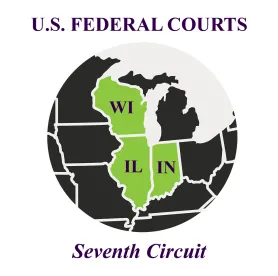In Shanahan v. Nat’l Auto Prot. Corp., 2020 U.S. Dist. LEXIS 101031 (N.D. Ill. June 9, 2020), the court dismissed three defendants for lack of personal jurisdiction, rejecting plaintiff’s conclusory allegations that a fourth defendant who called plaintiff was acting as an agent for the other three defendants.
On June 3, 2019, plaintiff received an unsolicited phone call from National Auto regarding extended automobile warranties, which plaintiff ultimately purchased. After plaintiff purchased and received some material regarding the automobile warranty she purchased, according to the complaint, she realized that her service plan was with the three other defendants, including two Matrix companies and National Motor (collectively, the “Non-Calling Defendants”). She then sued all four entities for violations of the TCPA, (2) the Illinois Automatic Telephone Dialers Act (ATDA); and (3) the Illinois Consumer Fraud and Deceptive Business Practices Act (ICFA).
The Non-Calling Defendants moved to dismiss for lack of personal jurisdiction. The court initially found that there was no general jurisdiction over any of the three defendants, which were not incorporated in Illinois nor did they have their principal places of business there.
Plaintiff argued that there was specific personal jurisdiction over the Non-Calling Defendants because National Auto was their agent. The court noted that “[p]arties create an agency relationship when a ‘person (a “principal”) manifests assent to another person (an “agent”) that the agent shall act on the principal’s behalf and subject to the principal’s control, and the agent manifests assent or otherwise consents so to act.’” An agent’s authority can be actual or apparent. The court additionally found that to be held vicariously liable under the TCPA, an agent must have either express or apparent authority.
As to plaintiff’s agency theory in this case, the court first rejected plaintiff’s contention that National Auto had actual authority from the Matrix companies or National Motor. The agreement she relied upon to make that argument was with only one of these defendants, and more importantly, the court found that although the contract grants “some control over National Auto, it does not provide sufficient control to confer agency under an actual authority theory.” Following the Seventh Circuit’s decision in Warciak v. Subway Rests., Inc., 949 F.3d 354 (7th Cir. 2020), the court found that “’while an agency relationship can be created by contract, not all contractual relationships form an agency.’” The court also found that a declaration submitted by defendants further undermined plaintiff’s theory that the contract created an actual agency relationship.
The court contrasted the contract in this case with that in Karon v. CNU Online Holdings, LLC, No. 18 C 7360, 2019 U.S. Dist. LEXIS 117925, 2019 WL 3202822, at *3 (N.D. Ill. July 16, 2019), where “the plaintiff alleged sufficient facts to establish vicarious liability because the defendant told its contracted telemarketer ‘where to call, how often to call, and where to direct customers during the call.’” The court found that in this case the plaintiff did not allege that Matrix exerted that level of control over National Auto’s phone calls or provided any direction as to how the marketing calls proceeded.
The court also rejected plaintiff’s assertions of apparent authority. Plaintiff argued that the Non-Calling Defendants manifested apparent authority through the service plan contract and brochure which “included their names and made them parties to the Service Plan.” The court, however, was unpersuaded that merely receiving a service plan would cause a reasonable third-party to believe that the seller must have been their agent. “Plaintiff does not identify any statements made by the [Non-Calling Defendants] in her Service Plan materials—or at any other time—representing that they made National Auto their agent. This failure defeats her theory based upon apparent authority.” The court also noted that third parties frequently encounter scenarios where one party sells or markets the goods or services of another company without being an agent of that company. Despite the availability of discovery, plaintiff offered nothing to suggest that this was not the case here.
Finally, the court rejected plaintiff’s argument that the Non-Calling Defendants created an agency relationship with National Auto by ratifying its actions. The court found that Non-Calling Defendants submitted unrebutted affidavits that they did not know of National Auto’s calling practices, and thus, they did not ratify such practices.
For those of us in TCPAWorld defending against agency and vicarious liability claims, this case demonstrates the importance of making sure your contracts do not inadvertently create an agency relationship when one truly does not exist and if you nonetheless become a defendant in TCPA litigation, the importance of submitting evidence to demonstrate the lack of actual or apparent authority over your vendors. If you follow these best practices, you not only have merit-based defenses, but it also may help you on personal jurisdiction.




 />i
/>i

